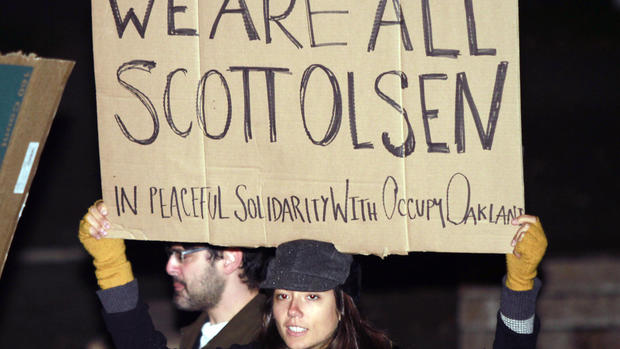Tenn. agrees to stop arresting protesters
NASHVILLE, Tenn. - Tennessee agreed Monday to stop enforcing a new curfew used to dislodge Occupy Nashville protesters from the grounds around the state Capitol.
The protesters went to federal court seeking a temporary restraining order against Gov. Bill Haslam, saying the curfew and arrests of dozens of supporters on Legislative Plaza violated their rights to free speech and freedom of assembly.
State Attorney General's Office Senior Counsel Bill Marett announced at the beginning of a hearing before Judge Aleta Trauger that the state would not fight efforts to halt the policy.
Trauger said she had already decided to grant the restraining order because the curfew was a "clear prior restraint on free speech rights."
"I can't think of a more quintessential public forum than Legislative Plaza," Trauger said.
Letters of support boost Occupy Wall St.
After 7 weeks, Occupy still going strong
Ore. protesters arrested in affluent district
State troopers used the curfew put into place on Thursday to arrest 29 protesters early Friday and 26 people early Saturday.
Both times a Nashville magistrate refused to jail the protesters saying the state didn't have probable cause to arrest them. They were released with citations.
The Nashville protesters are part of the six-week-old Occupy movement, which began in lower Manhattan to decry corporate influence in government and wealth inequality. It has spread to cities large and small across the country and around the world.
Marett said his office will meet with the plaintiffs to come to an agreement on health and safety issues.
The suit says Haslam approved the new curfew after complaints over three misdemeanor violations - "an assault, public urination and an apparent tryst beneath a magnolia tree" - around the plaza where the protesters have been camped out since Oct. 6.
